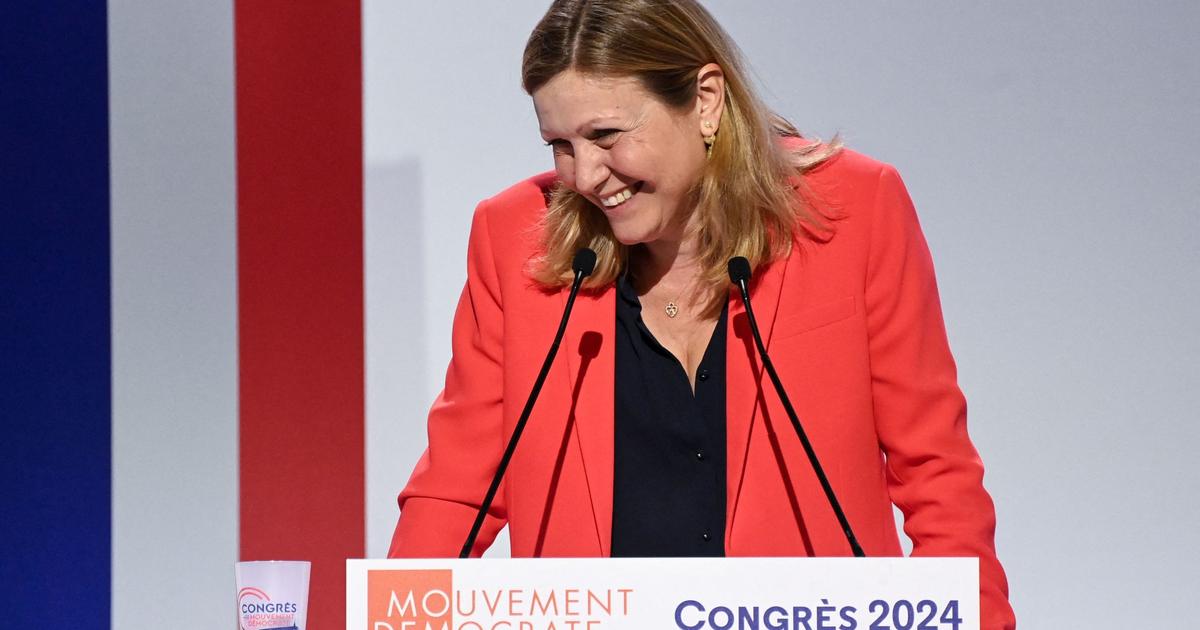editorial
Written by: Hong Kong 01
2021-06-15 06:00
Last update date: 2021-06-15 06:00
Earlier this month, an important news came from the international community. During the Finance Ministers' Meeting held in London, England, the Group of Seven (G7) reached a consensus on setting the global minimum corporate tax.
Simply put, G7 agrees to target large companies with a profit margin of more than 10%, and the minimum tax rate is recommended to be no less than 15%.
Although the G7 consensus will be handed over to the Group of Twenty (G20) to allow more countries to participate in the discussion, this is undoubtedly a big step forward for related initiatives. It is no wonder that the finance ministers of the G7 countries successively declared this to be historic. A moment.
Why is the world's lowest corporate tax so historic?
In the past few decades, economic neoliberal theory has prevailed. Countries have pursued methods such as "relaxing" enterprises, deregulation, and lowering tax rates.
Although this series of measures may really bring many benefits to business operations, society has paid a huge price for it.
The deregulation later led to the Lehman Brothers "burst" incident, which triggered the 2008 financial tsunami, which severely hit the global economy. The United States and Europe were the first to bear the brunt. Other economies have not been spared, and some of them have not recovered yet.
On the other hand, economic neoliberalism believes that the government is inefficient in spending money, and therefore believes that where the government can ignore, it should try its best to ignore; since the government should not be in charge, there is no need to pay so many taxes. Low taxes are equivalent to "harvesting wealth in the people." The concept of ”was once popular.
In addition, in order to attract multinational companies to settle in, governments of various countries have lowered their tax rates, and companies have also used these opportunities to transfer large amounts of profits to countries or regions with low tax rates to avoid taxation. This is the topic of "tax base erosion and profit shifting". "(BEPS) question.
In the past three decades, there has been vicious competition among many countries for tax reduction. According to the data of the Organization for Economic Cooperation and Development (OECD), in the two decades since 2000, the average corporate income tax rate of OECD countries has increased from 32.3 % Decreased by 8.6 percentage points to 23.7%.
In the past few decades, economic neoliberal theory has prevailed. Countries have pursued methods such as "relaxing" enterprises, deregulation, and lowering tax rates.
(Reuters)
The minimum tax may not be perfect, but it can end vicious competition
Although the downward tax base will not trigger an explosive global crisis like the financial tsunami, it has silently created countless social problems.
The decline in fiscal revenue has made the government less and less money available, and the result is really less and less managed as neoliberals hope.
Although economic efficiency may be higher in this environment, the "people" who "harvest wealth in the people" are ultimately just a few capitalists who control the laws of capital. As a result of laissez-faire capitalism, wealth is more concentrated and economic inequality in society is exacerbated.
Under the new crown epidemic, the wealth of the world's wealth has skyrocketed due to asset appreciation, while the low-income class is plagued by unemployment or falling income.
Even if the government does not want to reduce social security, the long-term decline in income will stretch the public finances, and in a disguised form the government will be heavily indebted. This has generally been the case in most Western advanced economies in recent years.
Although the G7 has reached a principled consensus on the global minimum corporate tax, the road ahead is still rugged. The conflict of interest between countries has not been resolved as a result, and it is estimated that there will be many obstacles.
Take the e-commerce giant Amazon as an example. It is the target of the EU’s plan to impose a "digital tax." However, this time the consensus may not include this Internet company because its profit margin is 6.3%. , Has not yet reached the 10% threshold, but it is still unknown whether EU countries will let it pass.
In fact, the reason why the U.S. government expressed its opposition from the past until the Biden administration suddenly changed its enthusiasm to promote the lowest corporate tax plan in the world was actually related to the conflict of interest between the United States and Europe.
In the past few years, many European countries have begun to impose digital taxes on technology companies because they are dissatisfied that large technology companies can avoid the traditional tax net.
Most of these technology giants are American companies, which aroused dissatisfaction in the United States. The former President Trump even threatened to counterattack in an all-round way, imposing substantial tariffs on European exports of American products, which intensified the long-standing grievances in US-European relations.
The Biden administration has turned to actively promote the lowest corporate tax in the world. One of the goals is undoubtedly to replace the targeted digital tax on US companies with a seemingly fair method, and Europe can also avoid direct fire and disputes with the United States.
Regardless of the shortcomings of this plan, the world's lowest corporate tax can indeed target corporate tax avoidance loopholes, which is worthy of recognition.
The purpose of levying the world’s lowest corporate tax is to prevent the tax rate from continuing to fall, so that large companies can assume their social responsibilities, so that governments cannot find excuses to avoid the responsibility of secondary distribution, thereby alleviating the disparity between the rich and the poor created by neoliberalism. social problem.
As the U.S. Treasury Secretary Janet Yellen said, this plan "can end 30 years of vicious competition" and prevent super-large companies like Apple from gaining access to Ireland by setting up their registered place in Ireland. The EU only pays special treatment less than 1% tax.
Very large companies such as Apple have received special treatment for paying less than 1% of taxes in the European Union by setting their place of registration in Ireland.
(Visual China)
Poverty disparity tears society apart and tax increases help ease injustice
From the time when Germany and France, two major European countries, initially proposed the lowest corporate tax initiative for BEPS in the OECD and G20, until the G7 finally reached a consensus on this, Hong Kong's response to such a major international change has been very cold.
The market generally believes that this plan may have a negative impact on low-tax economies including Hong Kong. In response to related questions, Financial Secretary Chen Maobo only said that it is expected to have some impact on Hong Kong, but how much it needs to be. Further research, and will figure out how to respond.
Regardless of the fact that the discussion of the global minimum corporate tax has existed for many years, the Hong Kong government has not yet been able to give a more specific response blueprint. More importantly, the significance of the global minimum corporate tax is not simply whether it will cause some large companies to move out of Hong Kong, etc. The surface problem is that it further marked the decline of neoliberalism and the international trend of pursuing social redistribution by adjusting the tax system.
In the developed countries in recent years, the disparity between the rich and the poor has become more and more serious and has reached the point of causing serious social conflicts.
In May of last year, the death of American Negro Floyd (George Floyd) once again inspired black affirmative movements across the United States.
In addition to the problem of racial discrimination, it is also the result of long-term accumulation of dissatisfaction due to the long-term accumulation of dissatisfaction among blacks who have been at the bottom of society for a long time, and their economic achievements have not been effectively distributed.
The U.S. media recently exposed the confidential documents of the U.S. Revenue Service, showing that the 25 richest super-rich in the U.S. paid only 3.4% of the actual tax rate between 2014 and 2018, which is far lower than the 24.2% of the general working class in the United States. How serious economic injustice is, it goes without saying.
Hong Kong is also a society with severely unfair distribution. We have pointed out many times that whether it is the "Occupy Central" in 2014 or the anti-amendment movement in 2019, the huge social unrest seems to be caused by the political contradictions between dry ports and the underlying cause. The deep-seated contradiction of economic injustice within society.
The disparity between the rich and the poor in society and the solidification of the economic structure have made the upward ladder almost closed, making young people invisible to development opportunities and even desperate for the future.
Some speculative politicians have made political incitement, directed the desperate psychology of young people to xenophobia, and blamed the predicament they face on the mainland's influence on Hong Kong.
To solve these social problems, severe penalties can only be effective for a short period of time. The root cause of the disparity between the rich and the poor is to treat the root cause.
A big step forward in the world’s lowest corporate tax should also bring inspiration to Hong Kong.
The economic neoliberal idea of "low tax is good" is out of fashion. Countries are beginning to think about how to collect reasonable taxes on the profits of enterprises to make the government more capable of redistributing resources so that social fairness and justice can be achieved.
In the past, Hong Kong has always been proud of being a low-tax free port. Now is the time to let go of this outdated pride and rethink how to assume the responsibility of secondary distribution.
In fact, if "tax cuts and riches in the people make society better", then why does the Hong Kong public medical system always have more demand than supply, and the waiting time for patients to undergo surgery is always in the years?
Why is efficient private medical care reduced to a service that most members of society cannot afford?
There is no doubt that medical care is a public sector in which Hong Kong needs to invest more funds. In addition, Hong Kong still has many social safety nets such as housing, retirement protection, and unemployment protection that need to be provided by the government. The government must provide more appropriate and sustainable social safety nets. With the financial support of China, restructuring the tax system is a path worth considering.
As we all know, to improve the living environment, increase social security, promote economic transformation, and create an employment environment that is more in line with the quality of life, there is no need for a long-term income to support them. These are not problems that can be completely solved by existing fiscal surpluses. Hong Kong The government and elites should take the global minimum corporate tax plan to seriously think about what kind of society we need and how taxation can provide society with better public services.
Please pay attention to the 269th "Hong Kong 01" Weekly News published on June 15, 2021, which is available at major newsstands, OK convenience stores and Vango convenience stores.
You can also
click here to
sample the weekly e-newsletter and read more in-depth reports.
Neoliberal tax return 01 View 01 Weekly Editorial 01 Weekly Hong Kong Economic G7 Summit


/cloudfront-eu-central-1.images.arcpublishing.com/prisa/MYQ5IMFXJZF4NGVYA5PCRZJJCM.JPG)






